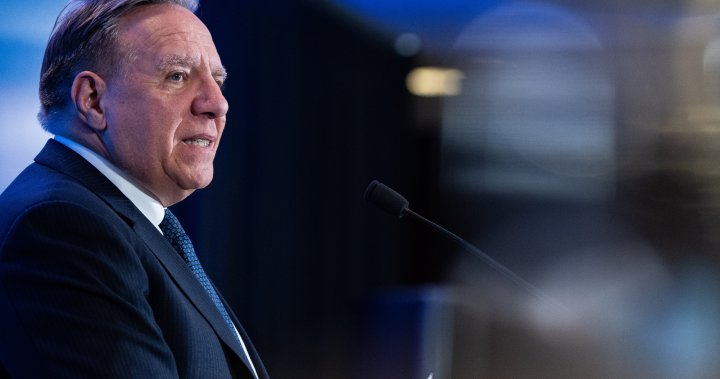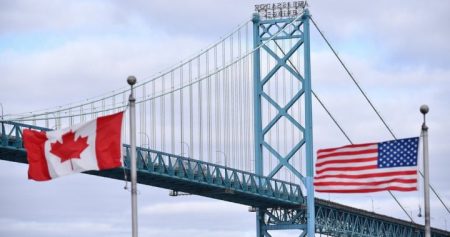Quebec’s Fury and the U.S. Aluminum Tariffs: A Growing Trade Dispute
Introduction to the Crisis
The aluminum industry in Quebec is in an uproar following U.S. President Donald Trump’s decision to impose a 25% tariff on all aluminum imports. This move, signed into effect on March 11, has been met with outrage from both political leaders and industry experts in the province. Quebec, as the largest supplier of aluminum to the U.S., stands to suffer significant economic consequences. Premier François Legault, who recently traveled to Washington, D.C., alongside other Canadian premiers, has called the move “totally unjustifiable” and has vowed to defend Quebec’s interests and workers vigorously. The tariffs are set to take effect on March 12, leaving little time for negotiation or mitigation strategies.
The Fury in Quebec: Industry Leaders Speak Out
Industry leaders in Quebec have been vocal about their disbelief and frustration over the tariffs. François Racine, president and CEO of AluQuébec, which represents over 40,000 workers in the aluminum industry, has expressed his shock at the announcement. He warns that the tariffs will not only increase the price of aluminum by at least 25% but also drive up the cost of all products made with aluminum, further fueling inflation. This is particularly concerning, as Trump himself has often cited inflation as a key issue he aims to combat. Racine and other industry leaders argue that the tariffs are nothing more than a bullying tactic by the U.S. president, designed to exert pressure on Canada.
The Devastating Impact on Quebec’s Aluminum Industry
Quebec’s aluminum industry is a cornerstone of the province’s economy, representing the second-largest economic sector after aerospace. The province produces 90% of Canada’s aluminum, with much of it being exported to the U.S. Government data reveals that Quebec accounts for 60% of the aluminum used in the U.S., making it the primary supplier of the metal in North America. AluQuébec estimates that the revenue generated from aluminum processing amounts to $11.6 billion annually, with the U.S. being the largest market for Canadian aluminum. The tariffs threaten to disrupt this lucrative trade relationship, with smaller processing companies being particularly vulnerable. Racine emphasizes that the majority of workers in the industry are employed by these smaller firms, which are heavily dependent on the American market.
A Commitment to Sustainability: Quebec’s "Green" Aluminum
Amid the growing tensions, Quebec is also highlighting its commitment to sustainable aluminum production. According to Investissement Quebec, the province produces some of the “greenest” aluminum in the world, with over 97% of its energy coming from renewable sources, primarily hydroelectric power. This eco-friendly approach means that aluminum produced in Quebec generates significantly fewer greenhouse gas emissions compared to production in regions like the Middle East or China. Quebec’s focus on sustainability is not just a point of pride; it also underscores the province’s argument that the U.S. tariffs are unjustified, as they penalize a leader in responsible aluminum production.
A Historical Context: Trade Tensions and Past Tariffs
This is not the first time Trump has targeted Canada’s aluminum industry. In 2018, he imposed similar tariffs of 25% on steel and 10% on aluminum, which remained in place for about a year. These tariffs were eventually lifted after intense negotiations and the imposition of retaliatory measures by Canada. However, the resurgence of these tariffs under the same administration has raised concerns about the long-term stability of the trade relationship between the two nations. Prime Minister Justin Trudeau has already begun efforts to convince the U.S. administration that the tariffs will harm both countries’ economies. Trudeau has highlighted the negative impacts on American consumers and workers, particularly in states like Ohio, where Vice-President JD Vance previously served as a senator.
Conclusion: The Road Ahead for Quebec and Canada
As the situation unfolds, Quebec and the broader Canadian government are preparing for a tough battle to protect their interests. The tariffs not only threaten the livelihoods of thousands of workers in the aluminum industry but also risk inflating prices for consumers on both sides of the border. Industry leaders like François Racine are sounding the alarm about the long-term consequences of these tariffs, warning that they could make North American products less competitive globally. With the tariffs set to take effect soon, the coming weeks will be critical in determining whether Canada can negotiate a resolution or whether the U.S. will proceed with this contentious policy. For now, Quebec remains at the forefront of the fight, determined to defend its economy and its workers against what it sees as an unjust and unnecessary trade move.












